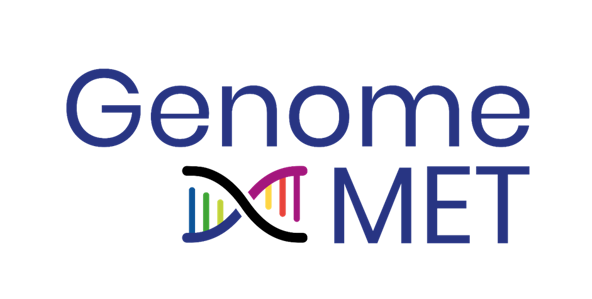GenomeMET
Background
Genomic profiling techniques such as Next Generation Sequencing (NGS) are used to obtain information about an individual’s genetic profile. This information can then be used to develop personalised treatment and aid earlier and more accurate diagnosis and monitoring of diseases such as cancer.
However, the analytical complexity of genomic profiling introduces significant uncertainties, which can impact on the reliability and accuracy of the testing. Metrology (measurement science) is fundamental to provide confidence in data to overcome these challenges and support implementation of genomic profiling.
Overview
The overall aim of the European-funded (European Partnership for Metrology) project GenomeMET is to improve the accuracy and comparability of genomic profiling across the European Healthcare System. GenomeMET is a collaborative project focussed on developing a robust metrological (measurement) infrastructure to support method validation and quality control at both the pre-analytical and analytical stages. The project will also develop reference measurement procedures for measuring genomic biomarkers. Overall, the outcomes of the project will support earlier and more accurate cancer diagnostics, alongside tailored treatment strategies.
The Consortium
The consortium, led by the Instituto Nazionale Di Ricerca Metrologica (INRIM – the National Measurement Institute of Italy) includes leading European metrology institutes (NML at LGC, LNE, METAS, MHRA, NIB , PTB, UME), instrument manufacturers, EQA scheme providers, regulatory bodies, sequencing centres and clinical laboratories.
Work Package 1
The National Measurement Laboratory at LGC is leader of Work Package (WP) 1 of the project. WP1 focuses on establishing a metrology framework essential for the quality assurance (QA) and quality control (QC) implementation in clinical laboratory settings, particularly for Next Generation Sequencing (NGS) workflows. This involves addressing pre-analytical factors such as DNA quantity (e.g. mass or genome equivalents) and quality (e.g. fragment size and purity), ensuring the traceability of methods, and meeting the rigorous requirements of the In Vitro Diagnostic Regulation (IVDR) and ISO 15189 for specimen handling and the entire workflow.
Key areas:
- Quality Control and Assurance: The initiative underscores the importance of precise QC/QA in the input phase to NGS workflows, focusing on the critical pre-analytical factors that influence DNA integrity and suitability for sequencing.
- Metrology Framework Development: This further extends the work by developing concepts that support genomic In Vitro Diagnostic (IVD) development and validation. This includes evaluating the analytical performance of NGS methods, such as sensitivity, specificity, and quantitative accuracy, and ensuring the metrological traceability of variant allelic frequency (vAF) and molecular copy numbers.
The work package aims to create a comprehensive metrology framework that not only enhances the reliability and traceability of genomic data but also aligns with international standards and regulations. By doing so, it seeks to pave the way for improved diagnostic precision, fostering advancements in personalised medicine and patient care.
Find out more about the project here.

